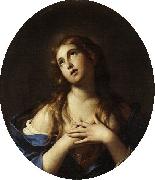Wholesale Oil Painting Reproductions No Minimum and Door to Door! |
|||||||||||
|
|
|||||||||||

|
|||||||||||
|
|
|
||||||||
All Guido Cagnacci Oil Paintings |
||||||||
|
|
||||||||
|
|
||||||||
|
Artist Introduction: (January 19, 1601 - 1663) was an Italian painter of the late-Baroque period, belonging to the Forle painting school and to the Bolognese School.
Born in Santarcangelo di Romagna near Rimini, he died in Vienna in 1663. He worked in Rimini from 1627 to 1642. After that, he was in Forle, where absorbed the lesson of the Melozzo's painting.
Prior to that he had been in Rome, in contact with Guercino, Guido Reni and Simon Vouet. He may have had an apprenticeship with the elderly Ludovico Carracci. His initial output includes many devotional subjects. But moving to Venice under the name of Guico Baldo Canlassi da Bologna, he renewed a friendship with Nicolas Regnier, and dedicated himself to private salon paintings, often depicting sensuous naked women from thigh upwards, including Lucretia, Cleopatra, and Mary Magdalene.This allies him to a strand of courtly painting, epitomized in Florence by Francesco Furini, Simone Pignoni and others. In 1650, he moved to Venice. In 1658, he traveled to Vienna, where he remained under patronage of the emperor Leopold I.
His life was at times tempestuous, as characterized by his failed elopement (1628) with an aristocratic widow. Some contemporaries remark him as eccentric, unreliable and of doubtful morality. He is said to have enjoyed the company of cross-dressing models. |
||||||||
|
|
||||||||
|
Maria Maddalena Painting ID:: 76693 |
Oil on canvas
75,5 ?? 65,4 cm
cjr |
|||||||
Height Width |
INS/CM Quality |
|||||||
|
X |
| |||||||
|
|
||||||||
All Artemisia Gentileschi Oil Paintings |
||||||||
|
|
||||||||
|
|
||||||||
|
Artist Introduction: Italian
1593-1652
Artemisia Gentileschi Gallery
Gentileschi was born on July 8, 1593 in Rome. She was the daughter of the painter Orazio Gentileschi and was trained by him. Our perception of Gentileschi has been colored by the legend surrounding her. Her alleged rape by her father colleague, the quadratura painter Agostino Tassi, when she was 17, was the subject of a protracted legal action brought by Orazio in 1611. Although she was subsequently married off to Pietro Antonio di Vicenzo Stiattesi in 1612 and gave birth to at least one daughter, she soon separated from her husband and led a strikingly independent life for a woman of her time - even if there is no firm evidence for the reputation she enjoyed in the 18th century as a sexual libertine. After her marriage, Gentileschi lived in Florence until about 1620. She then worked in Genoa and settled in Naples in 1630. Gentileschi traveled to England in 1638-40, where she collaborated with her father on a series of canvasses for the Queen House, Greenwich (now Marlborough House, London). Gentileschi died in Naples in 1652.
It is tempting to adduce the established biographical data in partial explanation of the context of her art: the sympathy and vigor with which she evokes her heroines and their predicaments, and her obsession with that tale of female triumph, Judith and Holofernes. But such possibilities should not distract attention from the high professional standards that Gentileschi brought to her art. In a letter, dated July 3, 1612, to the Grand Duchess of Tuscany, Orazio claimed that "Artemisia, having turned herself to the profession of painting, has in three years so reached the point that I can venture to say that today she has no peer. Despite the obvious exaggeration, one can agree that Gentileschi art was of a consistently high quality virtually from the beginning.
|
||||||||
|
|
||||||||
|
|
Maria Maddalena Painting ID:: 82396 |
1616(1616)
Medium Oil on canvas
cyf |
||||||
Height Width |
INS/CM Quality |
|||||||
|
X |
| |||||||
|
|
||||||||
|
Prev Next
|
||||||||
|
|
||||||||
|
Related Paintings to Artemisia Gentileschi :. |
||||||||
|
|
||||||||
|
CONTACT US |


